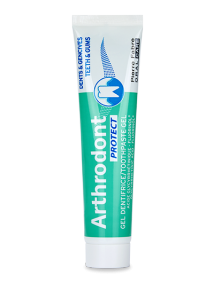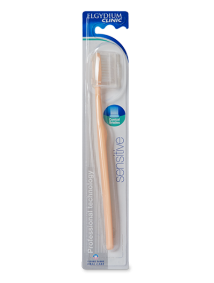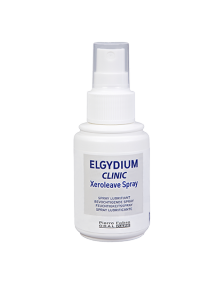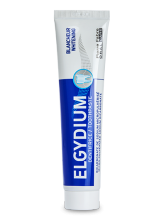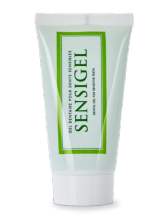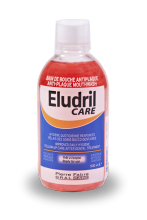What is the solution to dry mouth?
The effects of xerostomia
The symptoms of dry mouth
Dry mouth (also called ?xerostomia?) is the result of an insufficient flow of saliva (?hyposalivation? or ?aptyalism? if there is no saliva at all). Symptoms are a ?pasty? feeling in the mouth, a dry throat, burning and sometimes small sores.
It may become difficult to chew food and wearing dentures may become unbearable. Family and friends of those affected will attest that dry-mouth sufferers can have bad breath.
The complications of dry mouth
The lack of saliva is conducive to the build-up of dental plaque which increases the risk of gingivitis, tooth decay and other infections in the mouth, particularly in smokers.
In the elderly, a dry mouth may lead to malnutrition, with weight loss and general weakness. In addition to difficulties with chewing, xerostomia tends to impact the sense of taste, which contributes to the reduced food intake.
What are the causes of dry mouth?
Xerostomia is more common in older people
Older people often suffer from dry mouth as saliva production tends to reduce with age. In addition, older people often have to take a number of different medicines for chronic conditions, the side effects of which may also reduce the flow of saliva.
Lastly, some diseases that mostly affect the elderly can also reduce the production of saliva, either directly, or through treatment: Alzheimer's disease, Parkinson's disease, strokes and heart failure, for example.
Diseases that cause dry mouth
Some diseases can reduce the production of saliva and, sometimes, tears. These include ?auto-immune? diseases in particular, such as Sj”gren's syndrome which affects the salivary glands and lacrimal glands.
Diseases that obstruct the nose on a long-term basis (for example perennial rhinitis) force sufferers to breathe through the mouth, creating the sensation of a dry mouth.
Lastly, diseases that cause dehydration can dry out the mouth, like diseases leading to high temperatures and diarrhoea.
Medicines that cause dry mouth
Many medicines have the adverse effect of reducing the secretion of saliva. These include products taken to treat anxiety, depression or psychosis, allergies, colds, pain, heart disease and high blood pressure. To find out whether a medicine can cause dry mouth, read the patient information leaflet or ask your pharmacist.
Cancer patients treated with radiotherapy often complain of xerostomia, particularly when the tumour being treated is close to the salivary glands. Some cancer treatment chemotherapy drugs can also cause the mouth to feel dry.
Other causes of dry mouth
In addition to age-related causes, a disease or medical treatment, other factors may leave the mouth dry. The most common is tobacco which, in addition to bad breath, can cause inflammation of the salivary glands.
Chronic stress can also manifest itself as a dry mouth.
How can a dry mouth be soothed?
1. Stay hydrated to avoid dry mouth
Keeping your body well hydrated is the first habit to develop to prevent dry mouth and to maintain hydration of the oral mucosa.
Drink at least 1.5 litres of water a day and make sure you eat enough fruit and vegetables. Consider carrying a small bottle of mineral water around with you.
If you breathe through your mouth when you sleep, use a humidifier in your bedroom.
2. Use a saliva substitute
Saliva substitutes are products designed to replace saliva and keep the mouth lubricated for longer. Mostly available as sprays, they should be used throughout the day, following the manufacturer's instructions.
3. Stimulate the flow of saliva
There are various ways to stimulate secretion of saliva: for example, sucking sour sweets, chewing gum (preferably sugar-free) or crunching into fruit and vegetables.
There are medicines that are designed to stimulate the secretion of saliva, but they have adverse effects which limit their use. Ask your doctor or dentist for advice.
4. Avoid dehydrating drinks
To relieve a dry mouth, you should drink frequently. Be aware, however, that drinks containing caffeine or alcohol have a diuretic effect that exacerbates dehydration. Avoid overindulging in coffee, tea, colas, ?energy? drinks and all alcoholic drinks.
5. Quit smoking for better oral health
If you suffer from dry mouth, it is essential to stop smoking, both in order to regain sufficient saliva levels but also to prevent complications with the teeth and gums. Ask your doctor for advice; they will be able to provide you with support to quit smoking for good.
Dry mouth
Seniors often suffer from dryness in the mouth. There are products available for relieving dryness that are beneficial to oral hygiene and kind to the mucous membrane.
See the program